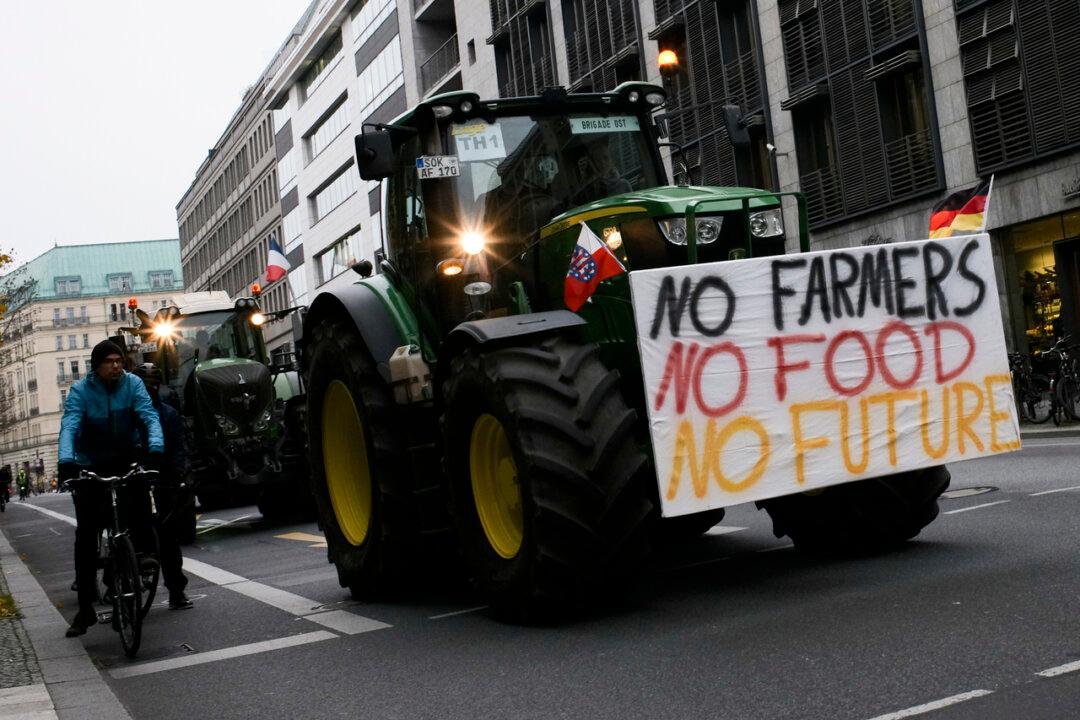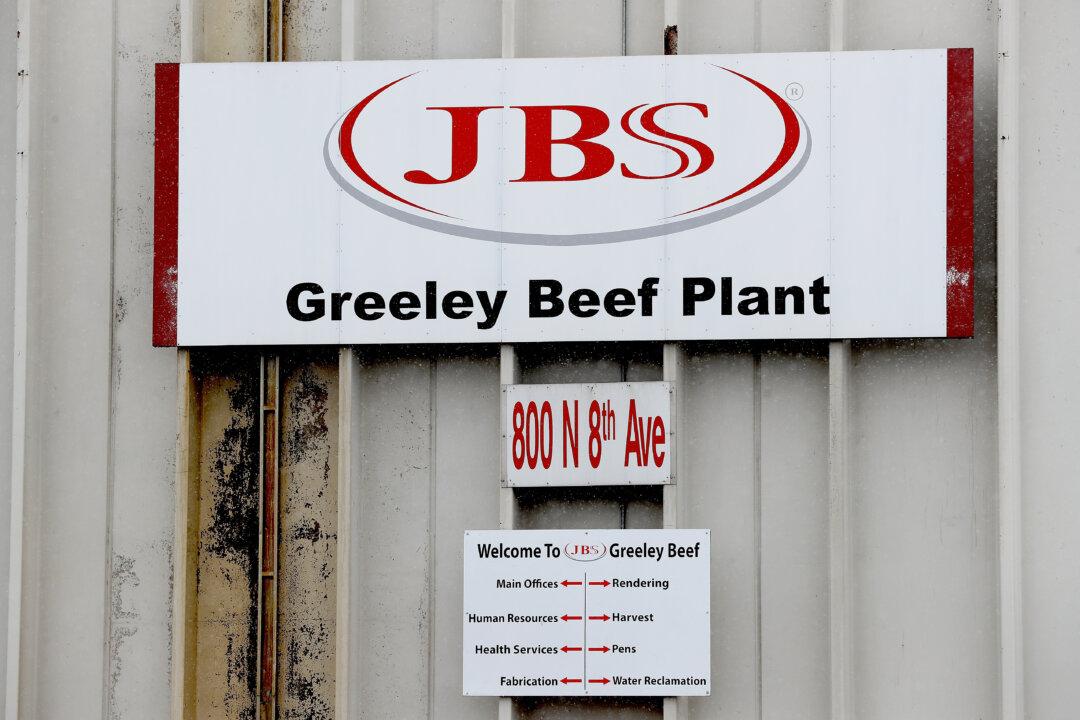Over 10,000 German farmers used around 5,000 tractors to bring central Berlin to a standstill on Tuesday. The farmers converged on the Brandenburg Gate near the German parliament to protest against German and European Union (EU) agricultural policies they say are driving them to ruin and leading young farmers to flee the land.
Massive Protests as German Farmers Decry Stringent Regulations
Frustrations at boiling point as farmers reject 'climate sinners' and 'animal abusers' labels

Farmers arrive for a protest at the government district in Berlin, Germany, on Nov. 26, 2019. Markus Schreiber/AP
|Updated:




